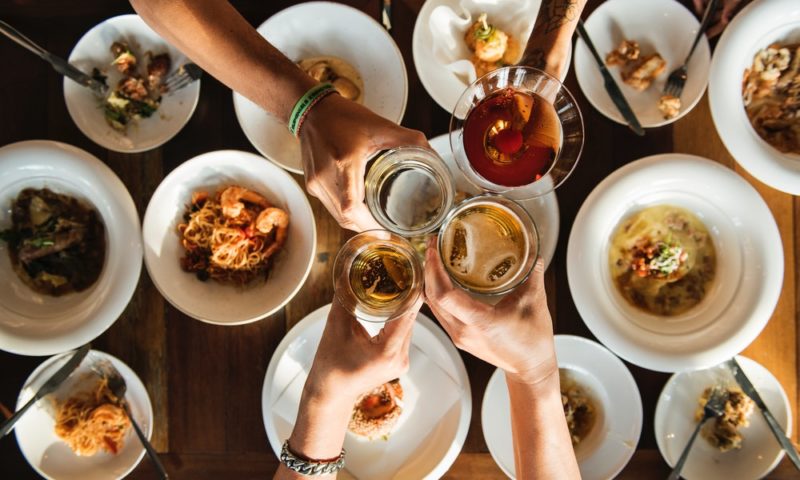Peer pressure isn’t anything new. We experience it as kids all throughout grade school — from our young elementary years to the day we graduate high school. We get it at our job when we want to be perceived as knowledgeable, reliable, independent and pleasant to be around. And we get it when we’re trying to live our healthiest lifestyle possible, especially when it comes to food.
Peer Pressure and Food
Do any of these situations sound familiar?
- It’s Monday and you’re ready to start the week right. Hours pass and a co-worker shares a box of doughnuts or jar of candy, encouraging you to eat one for a “pick me up.”
- You’ve lost a noticable amount of weight and attend a family gathering. A family member pressures you to eat something from the table you’d rather pass, saying “You’ve already done so well. A small bite or serving of this dish won’t hurt you.”
- You’re out to dinner at a restaurant with friends, celebrating a birthday or big event. Everyone around you orders high-calorie and greasy foods. You choose something lighter from the menu, and you get picked on for not splurging a little bit.
There’s going to be peer pressure almost everywhere you look. The key to avoiding giving in is to keep your goals, and your values, at the forefront of your mind and actions. When you’re prepared, you’re far less likely to fall off the wagon and regret it later on.
Tips for Fighting the Pressure
Communicate your thoughts and goals:
- “I’m working hard at sticking to healthy habits consistently. I’d like to pass.”
- “Managing my weight is important to me. I don’t think this will help.”
- “I would greatly appreciate support of my choices, which I know to be healthy.”
Avoid Talking about Your Food Choices
Others may say things like “Why didn’t you order food” or “don’t you want a side item like fries or something?” But remember, you don’t have you to justify your food choices. Talk about the rationale behind your decisions only when you want to. Otherwise, ignore comments and questions.
Be the Leader by Example
Others you spend time with not may be as concerned with health/ wellness. First, accept that they have different interests and goals, but stick to your healthy habits with confidence. They may take your dedication to your health as impressive and be motivated to make some of the same choices.
Avoid Uncomfortable Scenarios
Maybe you know that every year, chatting with your family around the kitchen counter on a holiday weekend is guaranteed to lead to talk about food. You can either suggest a different activity (like taking a walk around the block or going to the park) or spend less time around the counter. Suggest moving the conversation to the living room or backyard patio, for example.
Food is Always in Your Control
No matter how much pressure may be on you when it comes to food, know that it is ultimately in your power what you do and don’t consume. Be shameless in your choices and confident in the healthy habits you are trying to build. In the end, most people don’t care about your eating decisions to the degree we think they do. The temptation and the social influence will usually pass within moments, so try the above tips in the meantime.






